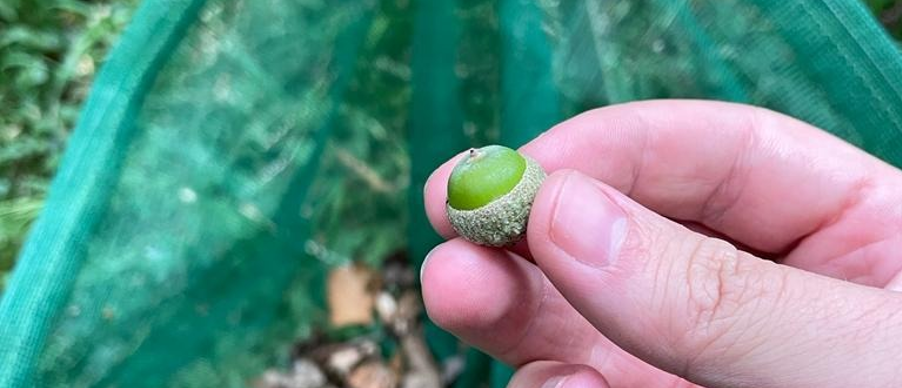Ryan McClory provides an update on his research following the possible shortfall for oak for the planting season. Ryan is investigating Drivers of Masting in Oak – a three and a half year PhD with the University of Reading with full -funding provided by the Patsy Wood Trust.
What are your thoughts on addressing the possible shortfall of oak for the planting season?
2021 was an incredibly poor year for acorns, so it is no surprise there is now a shortfall for this year’s planting season. In 2021, across the whole of Wytham Woods I collected a single acorn within my 160 litter traps. The Forestry Commission’s blog ‘Addressing the possible shortfall of Oak for the 2022/23 planting season’ refers to this as a short-term problem, which currently is true, and suggests using a more diverse planting stock as a stop gap measure until the next good year for acorns. But because we lack the understanding of the drivers of oak masting, we cannot predict how climate change will affect masting in the long term. It is possible that changes in climate will increase the gaps between masting events exacerbating an already disjointed acorn supply. With limited natural regeneration of oaks in the UK, it is important to ensure planting of oaks can continue uninterrupted.
How does your research address these issues?
My work aims to understand the drivers of oak masting.
My first project looks at individual variation in oak masting, whether there are any local factors explaining why some trees produce a particularly good acorn crop compared to their conspecifics (same species).
My second project looks at continent-wide weather and remote sensing data, to try and explain and predict the conditions that will lead to a good acorn crop, extrapolating these findings into future climate scenarios.
My third project is a pollen intervention study, looking into the affect of pollen source on acorn output. With full understanding of the proximate causes of masting we may be able to guide conservation measures aiding natural regeneration, determine best practices for seed orchards to maximise the levels of UK acorn crops, and be able to understand and predict how climate change will influence UK oak reproduction.


Leave A Comment